This post may contain affiliate links. Please read our disclosure.
There are many different approaches to nutrition and blood sugar management for people living with diabetes.
Some people swear by low-carb or ketogenic diets, some prefer diets with more balanced macronutrients, while others are strictly vegan.
All of these diets work and we don’t advocate for one particular nutritional approach here on Diabetes Strong. Instead, we want you to know about the different options so you can make an informed choice for what works for you, your body, and your diabetes.
Today, we will take a look at the very interesting high-carb, plant-based approach from the newly released book Mastering Diabetes.
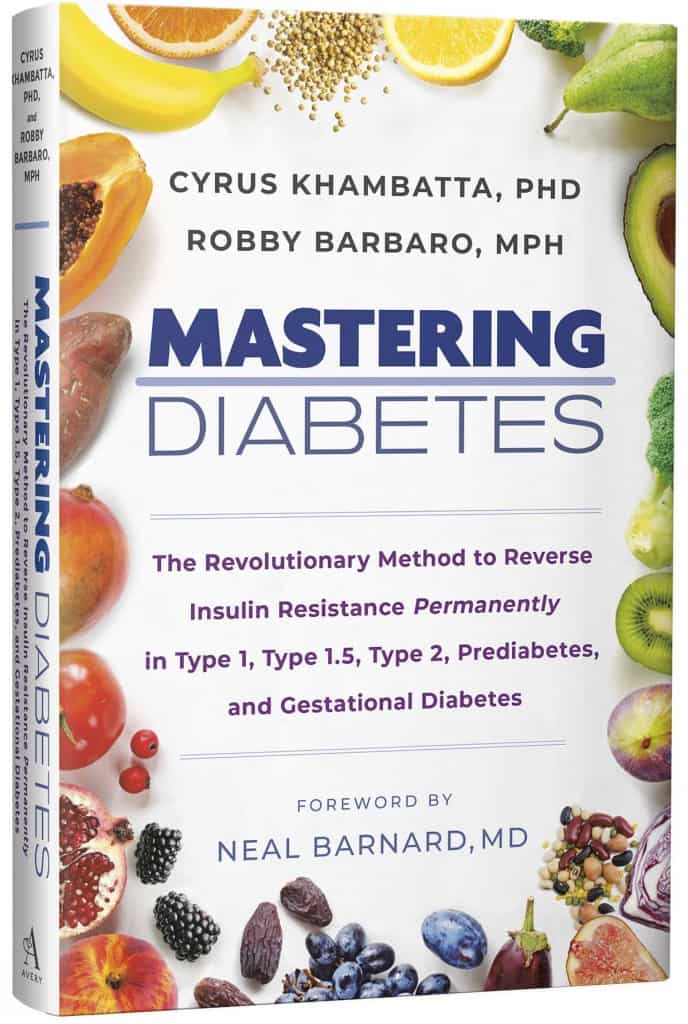
I recently had the pleasure of exploring the Mastering Diabetes approach to nutrition for people living with diabetes and it’s fascinating. It’s very different from the way I live my life, but it might just be perfect for you.
Cyrus Khambatta, Ph.D. and Robby Barbaro, MPH, the guys behind the Mastering Diabetes approach, both live with diabetes and they teach an approach that focuses on eating a plant-based diet consisting of plenty of carbohydrates and very limited fats.
Yes, you heard that right, a high-carb diet!
You might wonder how to make a high-carb diet work when living with diabetes or why that would even be something to explore. To answer some of these questions, I sat down with Robby Barbaro to discuss the new book and learn a bit more about the Mastering Diabetes approach and the philosophy behind it.
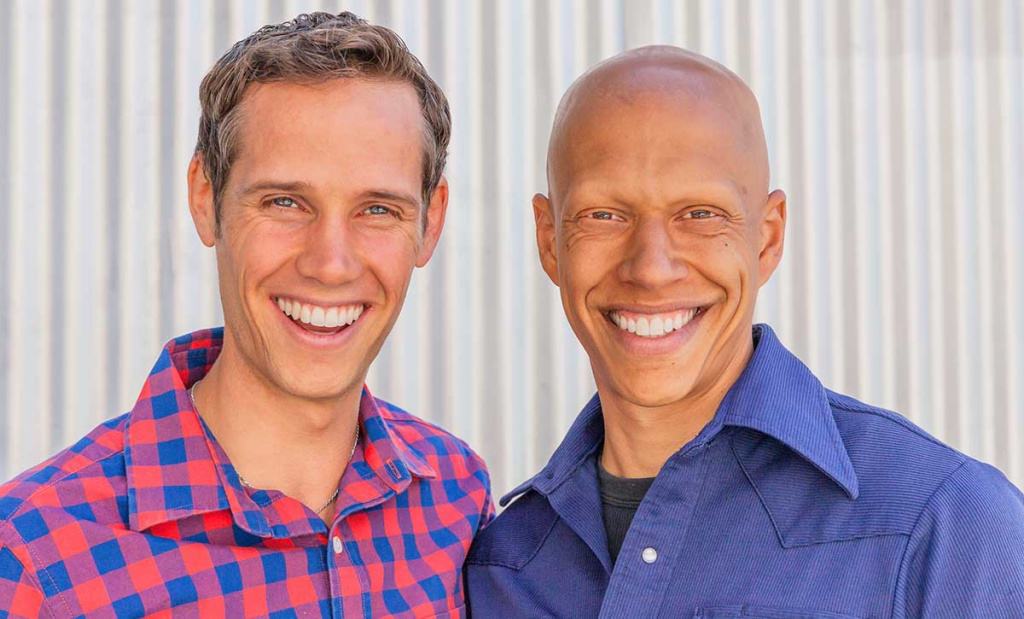
What has it meant for your personal health to follow this lifestyle?
Before adopting the Mastering Diabetes Method, I suffered from cystic acne, plantar fasciitis, chronic allergies, and glucose intolerance. Each of these conditions disappeared when I changed my lifestyle and maximized my insulin sensitivity.
I now eat over 700 grams of total carbohydrate per day and inject an average of 27 total units of insulin per day (about 13 units of long-acting insulin and 14 units of fast-acting insulin).
Cyrus, my co-founder and co-author, is an active athlete and has been playing soccer and lifting weights for more than 20 years. When he ate a low-carbohydrate diet (as his doctors had instructed him to do immediately after being diagnosed with type 1 diabetes in 2002), his energy levels decreased, his blood glucose was very challenging to control, and he wasn’t able to exercise as frequently or as intensely as he had his entire athletic career.
When he transitioned to a plant-based diet, his energy levels increased immediately, his blood glucose became significantly more controllable, and his insulin use fell by 40%.
He eats 600-700 grams of carbohydrate energy per day and injects 25-30 units of insulin per day (11 units of long-acting insulin and 14-19 units of rapid-acting insulin), and is more active than he’s ever been.
What is The Mastering Diabetes Method and how does it work?
The Mastering Diabetes Method is a system that is designed to reverse insulin resistance. First, let’s review what insulin resistance is and why it’s something worth understanding.
Insulin resistance occurs when your muscles and liver have an impaired response to the action of insulin. This is caused by the accumulation of excess fat in tissues that are not designed to store large quantities of fat, resulting in a reduced ability of insulin to promote glucose uptake in both muscle and liver cells.
Insulin resistance affects people living with all forms of diabetes (including type 1, type 1.5, prediabetes, type 2, and gestational diabetes), which dramatically increases your risk for coronary artery disease, atherosclerosis, cancer, high cholesterol, high blood pressure, obesity, peripheral neuropathy, retinopathy, Alzheimer’s disease, chronic kidney disease, and fatty liver disease.
How does this method reverse insulin resistance?
Our method reverses insulin resistance by helping you decrease the amount of excess fat that has accumulated in your muscle and liver cells. Those cells can then return to storing an appropriate amount of fat.
This is accomplished by:
Low-fat, plant-based, whole-food nutrition: We recommend eating foods that are naturally low in fat, high in fiber, water, and nutrient density to improve your insulin sensitivity dramatically. These foods include fruits, starchy vegetables, legumes, intact whole grains, non-starchy vegetables, leafy greens, herbs, spices, and mushrooms.
Intermittent Fasting: Changing the timing of your food intake is one of the most powerful ways to improve your insulin sensitivity, improve your cardiovascular health, and lose weight. Mastering Diabetes teaches you how to design and incorporate a sustainable intermittent fasting regimen to transform your metabolic health.
Daily Movement: Your body is designed for physical activity, and when you make daily movement a part of your lifestyle, you’re likely to dramatically improve your insulin sensitivity, energy levels, and mood.
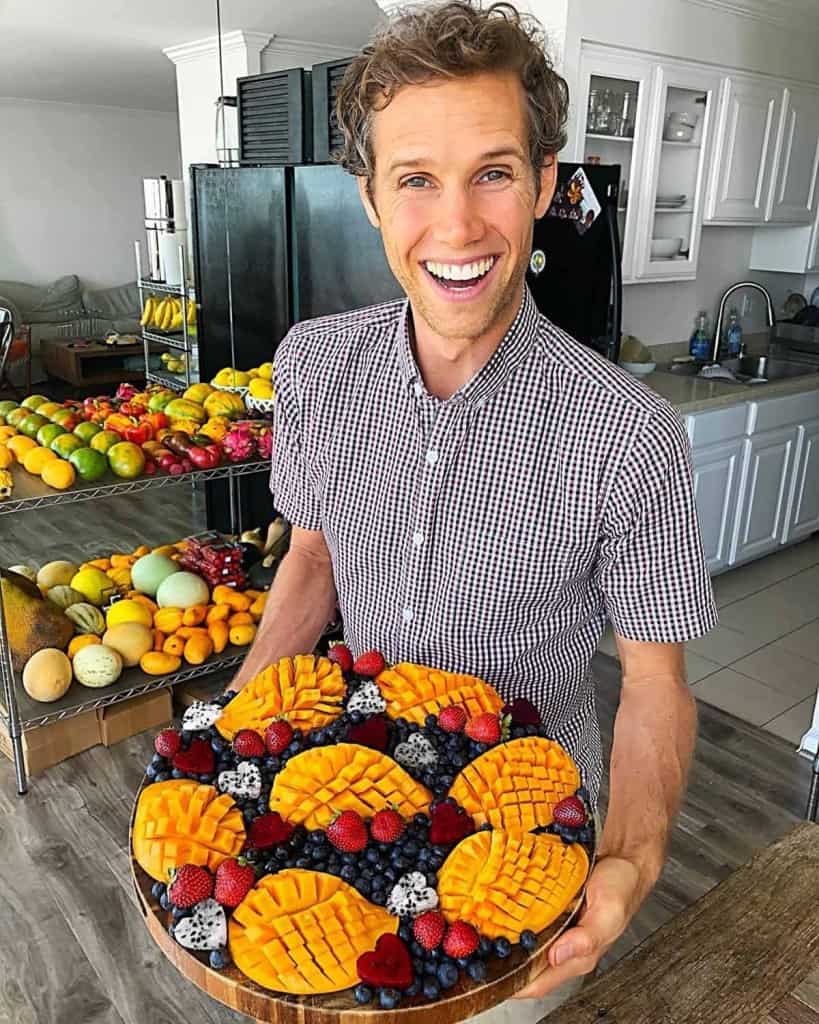
How do you handle blood glucose spikes on a high-carbohydrate diet?
For those living with insulin-dependent diabetes, there are a few keys to preventing post-meal blood glucose spikes:
- Do your best to make sure that your fat intake does not exceed 30 grams per day (or a maximum of 15% of total calories)
- Eat whole carbohydrate-rich food that is full of water, fiber, vitamins, minerals, antioxidants, and phytochemicals
- Transition to a plant-based diet slowly over the course of 1-2 months, and focus on changing only one meal at a time. This enables you to make small changes to your insulin and/or medication strategy and helps you understand how each meal affects your blood glucose control.
- Pay attention to insulin timing and make sure your blood glucose is 120 mg/dL and trending down before eating a carbohydrate-rich meal (using a fingerstick blood glucose measurement).
For those living with non-insulin dependent diabetes, follow the Mastering Diabetes Method exactly the way we describe in the book by measuring your level of baseline insulin resistance.
For those with a high level of baseline insulin resistance, we recommend taking a 2-step approach by eating low-glycemic foods for the first few weeks followed by higher-glycemic foods over the course of time. This enables you to incorporate more plants into your diet while minimizing the risk of hyperglycemia.
Can you follow the Mastering Diabetes Method successfully if you’re not vegan?
Yes, absolutely. We have a traffic light food system containing green light, yellow light, and red light foods in which we encourage you to eat a diet containing as many plant foods as possible.
If you choose not to eat a 100% plant-based diet, you can still eat small amounts of animal products found in the red light category and begin reversing insulin resistance predictably.
The truth is that we are not the food police. We simply encourage you to eat a diet containing as many plants as possible to maximize your insulin sensitivity, however, your desire to minimize or eliminate animal products is entirely up to personal choice.
Are there any downsides or things one should be aware of?
The biggest downside is that you’ll have to be willing to significantly reduce your consumption of delicious high-fat foods such as avocados, nuts, seeds, and coconut meat in order to truly maximize your insulin sensitivity
Be aware of how much of those foods you are consuming in order to make sure your transition is as smooth as possible. A small amount is beneficial, but it’s very easy to overeat fatty foods, which has an immediate negative impact on blood glucose control.
You can buy the Mastering Diabetes book HERE.
About Cyrus & Robby
Cyrus Khambatta, Ph.D., and Robby Barbaro, MPH are the cofounders of Mastering Diabetes, a platform that teaches people how to reverse insulin resistance via low-fat, plant-based, whole-food nutrition.
Cyrus has been living with type 1 diabetes since 2002. He has an undergraduate degree from Stanford University and a Ph.D. in Nutritional Biochemistry from UC Berkeley.
Robby was diagnosed with type 1 diabetes in 2000. He has an undergraduate degree from the University of Florida and an MPH from American Public University. He spent six years helping build the revolutionary Forks Over Knives empire, before turning his attention in 2016 to coaching people with diabetes full time.

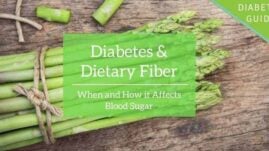
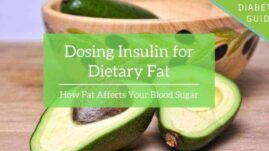
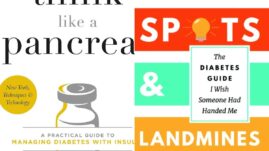
Derek F
Cyrus mentioned that it is impossible to go completely on a no fat diet, as you stated above not to go over 30g of fat daily. My question is how much fat minimally do we need a day?
Christel Oerum
I don’t know the answer to that. According to Mayo clinic this is the recommendation (but not minimum): “if you’re following a 2,000-calorie-a-day diet, your target range for total fat is 44 to 78 grams a day. Of that, saturated fat should make up no more than 22 grams”
Diane Burnell
Recently diagnosed with macular edema which they want to treat with injections. I do not have health insurance and they will not start treatment until I buy it. Any suggestions on what I can do yo take the inflammation out of my eyes
Phil
I’m interested in this as I am finding it increasingly difficult to maintain a diet somewhere between low carb and high carb. Although I have read the book is no good without using their online coaching . It’s disappointing that many diabetics who have found great success robbing their fellow diabetics of money instead of offering up all the info for free, not just a snippet. Which I’m sorry to say diabetstrong is no different.
Skeptic
Isn’t the point of controlling T2D to NOT need to depend on insulin at all? Mastering Diabetes seems like a joke if they’re taking THAT much insulin!
Christel Oerum
Some people with Type 2 diabetes will need insulin for life, regardless of their lifestyle. Robby whose story you hear in this post lives with type 1 diabetes
Karen Sue Lotz
Skeptic,
Diabetes is a progressive disease and most all people with T2DM will require insulin at some point. Both Robby and Cyrus have T1DM which requires taking insulin to live, no matter what diet is followed.
Christian F Ekpor
Mastering diabetes is really going to be beneficial to me. I am in Calabar, Cross River State, Nigeria. I’ll appreciate if one can buy the book here in Nigeria. I am type 2 diabete and dependent on insulin.